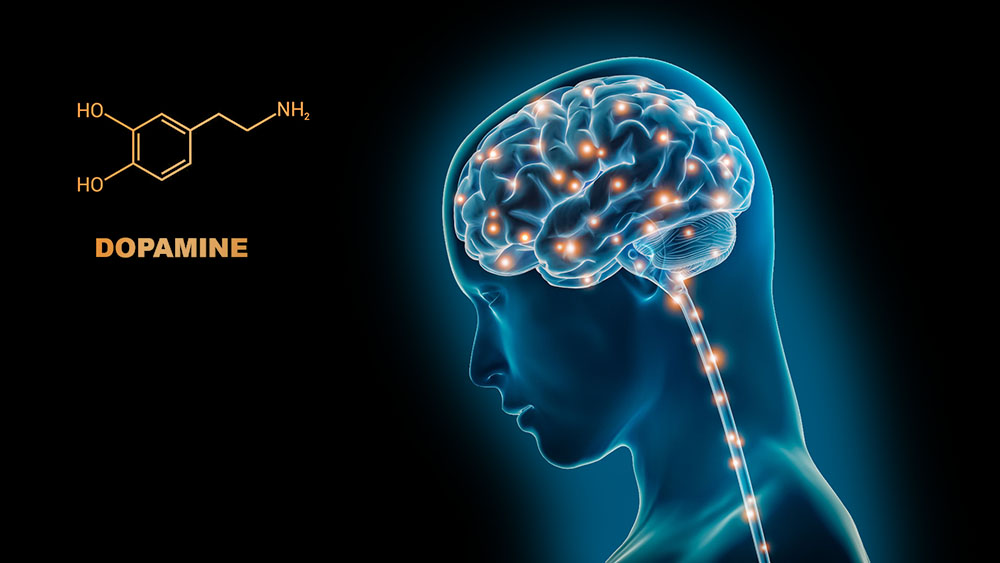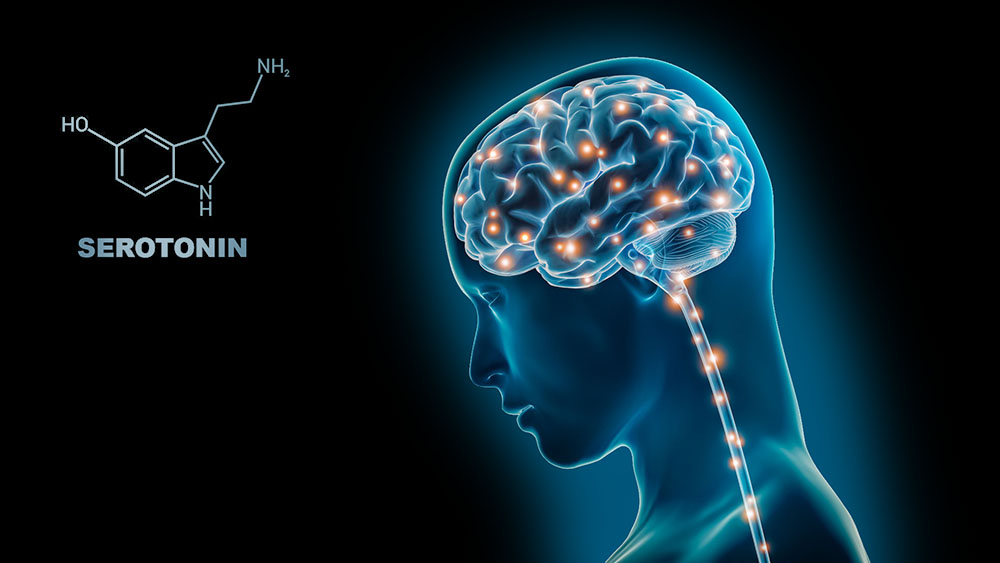Because of this mechanism, if you want to get more of the good feelings again, you have to do more of the same thing or you have to achieve success with doing something else. This simple neurologic program stimulated us in the past to hunt and gather more and more, and to keep discovering new things. If we had more resources on stock, and we discovered more, we always had more chances to survive.

This ancient neurologic program is still the driving force behind human progress. We always set our goals higher and higher because we start to get less and less rewarding neurochemicals if we stop at the level that we once reached. We have a natural tendency to try to do more and more and still never be fully satisfied. Some people say that it is bad human nature, but it is, in first place, a brilliant default program of our nervous system that helped us to survive more successfully in the past. If you understand this mechanism better, and you manage to unlearn its compulsive negative manifestations, then you can use it as an ultimate motivation tool for yourself.
How Experiencing Too Much Success and Happiness May Eventually Lead to a Bad Mood
Another problematic part of your success-related reward mechanisms is that they strongly influence your conscious thinking. Experiencing too much happiness releases high amounts of dopamine in your brain.

It can make you feel overly good and overly confident, leading you to underestimate potential threats and challenges. In nature, underestimating danger can be life-threatening, so our subconscious brain has developed an ingenious compensation mechanism. It brings you back to a more cautious mindset any time your dopamine levels become unusually high for a long period. Some dopamine receptors in your brain may become less sensitive or even get removed to make you feel normal again. With fewer functioning receptors, even when high amounts of dopamine are released, you feel its effects less and less. Other compensation mechanisms can also reduce the volume of the released dopamine itself. Unfortunately, later, when the “overdose” of dopamine finally stops, you will be left there with less dopamine and less sensitive receptors. You might end up in a pretty low, demotivated mood. When you end up in such a situation, it is called dopamine depletion.
The Problem of Surpassing our Natural Limitations
In our ancient life how successful we could become was limited. We could barely gather or hunt so much to chronically overstimulate ourselves. In modern life, however, success is unlimited. For making a lot of money, our subconscious also rewards us with huge bursts of dopamine in our reward pathways.

Some successful businessmen can make so much money in a single day that their subconscious mammalian brain may interpret it as similar to having gathered enough food for a hundred years. If their business grows exponentially, their success may increase day by day. They may get high amounts of dopamine rewards from their brain again and again. Some leaders and owners of businesses may also experience the achivements of their employees as their own personal achievements, which can lead to even more release of dopamine. If their brain detects that there is too much excitement, their compensation mechanisms may start to dampen their dopamine reward system. They will need even more success to avoid the depressed feelings that come with dopamine depletion.
The Rockstar Syndrome

The so-called rockstar syndrome is a similar mechanism in working. It may happen when someone becomes extremely successful and also becomes an important person. Because they are constantly surrounded by thousands of fans who admire and love them, in addition to experiencing high levels of dopamine, they may also experience elevated levels of oxytocin, often referred to as the ‘love and bonding hormone,’. During euphoric live performances, when music and dancing trigger intense sensory experiences, their reward pathways might also get completely flooded with high levels of endorphins as well. The abnormally high levels of all these ‘happy neurochemicals’ may lead to highly stressed or deeply depressed states after the euphoric times when their nervous system starts to compensate for the overstimulation.
Too Much Happiness and Joy In Any Form Can Overstimulate Your Brain’s Dopamine Reward System

In fact, anything that induces a very high level of excitement, joy, or pleasure can overstimulate your brain’s reward system, triggering compensation mechanisms and leading to depletion symptoms. Even if you are not a rockstar, but you are in the public participating in multiple-day festivals or dance events, you may experience a low mood at the end. Being on the other side of the podium is obviously less intense than being the superstar, and you don’t perform non-stop throughout the year. Therefore, it is unlikely that you will end up chronically stressed or depressed. However, you may need a couple of days to recover after overexciting yourself in a row for multiple days.
The Reason Why Dopamine Depletion May Lead from Stress and Depression to Drug Addiction
Unfortunately, many people, because they do not understand what is going on inside their brain during dopamine depletion, start to use alcohol and drugs to feel better.

Alcohol, for example, is a substance that triggers the release of high amounts of dopamine in the brain, while also inducing relaxation, providing relief from stress and depressed states of mind. However, the big problem is that alcohol causes people feeling more relaxed than normal, and it can also make them underestimate danger. Therefore, it can trigger the same compensation mechanism that leads to dopamine depletion. This creates a vicious circle, where people are fighting the compensation mechanism of their nervous system with a substance that triggers the compensation mechanism itself.
How to Avoid Dopamine Depletion
You can see that not all highly successful people end up in depression and drug addiction. However, if they are asked, most of them admit that they have had challenges with highly fluctuating mood and productivity. The secret of highly successful and mentally healthy people is that, when they are intelligent and conscious enough, they learn not to be too serious about themselves and their success. This consciousness can reduce their neurochemical response to their own success to normal levels. The good thing is that when neurologic responses return to normal, compensation mechanisms can be reversed. Even the neurochemical receptors in our brain, which are removed as a response to overstimulation, can grow back. Our nervous system is ingeniously designed by evolution to be able to rebalance itself.
Another Form of Happiness

Besides learning to consciously manage your brain’s dopamine response, you can also engage in activities that release another neurochemical in your brain, which can help make you happy in a very different way. Christian Lüscher, a professor at the University of Geneva, has found evidence suggesting that serotonin acts as a brake on the excitement induced by dopamine. Serotonin is a neurochemical that can turn the excitement caused by dopamine into satisfaction and joyfulness, which is a much more sustainable form of happiness in the long term. It is released by your brain during activities that provide joyful satisfaction without the need for achieving success in any way. The reason why serotonin contributes to a more sustainable form of happiness is that it is more difficult to overdose on it when it is induced naturally. While you frequently witness how too much success takes a toll on people’s mental well-being, you rarely find anyone ending up in burnout or depression because of experiencing too much satisfaction and contentment in their lives.
